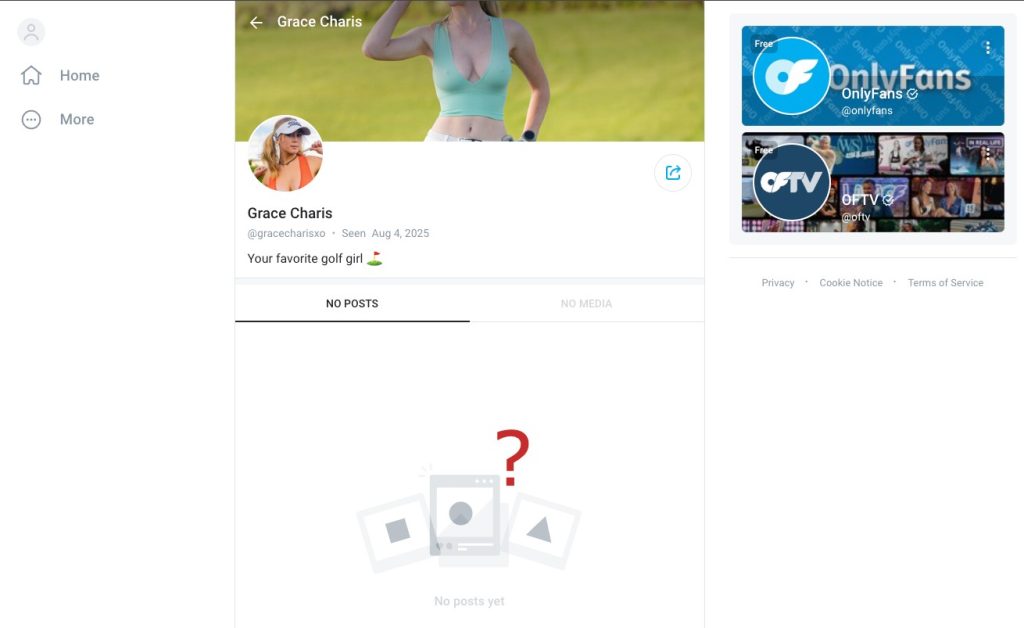A friends with benefits (FWB) relationship blends the comfort of friendship with the excitement of physical intimacy, all without the expectations of a committed romance. People often choose this setup for its flexibility and lack of emotional baggage.
If you’re curious about this dynamic, wondering if it suits you, or trying to decide if it’s worth a shot, keep reading.
What Is a Friends With Benefits Relationship?

A friends with benefits relationship involves two people who are friends and occasionally share physical intimacy, like kissing or more, without being in a romantic relationship.
Unlike dating, there’s no expectation of exclusivity, long-term commitment, or emotional support. The friendship remains the core, and the sexl side is an add-on for mutual enjoyment.
For example, imagine Sarah and Jake, who’ve been friends since college. They hang out, watch movies, and sometimes, when the mood strikes, they get intimate. They don’t call each other partners, go on dates, or plan a future together.
Their connection stays light, and they’re free to see other people. This setup works because they both want the same thing: fun without complications.
The key to FWB is clear boundaries. Both people agree on what’s okay and what’s not. Some might only meet up occasionally, while others hang out regularly but keep romance off the table. Honesty and communication make it work, ensuring no one feels misled.
Why Do People Choose Friends With Benefits?
People opt for FWB for various reasons, often tied to their lifestyle or emotional needs. Here are a few common motivations:
Freedom and Flexibility
Many enjoy FWB because it doesn’t tie them down. If you’re busy with work, school, or personal goals, a committed relationship might feel overwhelming. FWB lets you enjoy intimacy without sacrificing time or energy.
For instance, my friend Lisa, a nurse with long shifts, loved her FWB setup with a coworker. She didn’t have the time or energy for a boyfriend, but she still wanted to feel connected to someone.
Avoid Emotional Drama
Romantic relationships can bring jealousy, arguments, or heartbreak. FWB skips much of that. Since the focus is on friendship and fun, there’s less pressure to meet emotional expectations.
Think of Tom, who had a messy breakup and wasn’t ready to date again. He started an FWB arrangement with a gym buddy, enjoying the sex without worrying about falling in love.
Explore Physical Connection
Some people want to explore intimacy without jumping into romance. FWB offers a safe space to do that with someone you trust. It’s especially appealing for those who aren’t ready to settle down but still want physical closeness.
Teste Compatibility
Occasionally, friends use FWB to test the waters before committing to romance. While this can be risky (more on that later), it helps some figure out if they vibe physically without rushing into a relationship.
Who Might Find Friends With Benefits Suitable?
FWB isn’t a one-size-fits-all deal. It suits specific people in certain situations.
Busy Individuals
If your schedule is packed. Maybe you’re a student, a career-driven professional, or a single parent, FWB can fit nicely. It requires less time than a romantic relationship.
Emotionally Unavailable People
Some folks aren’t ready for love, perhaps due to a recent breakup or personal struggles. FWB lets them connect without diving into feelings. I knew someone who, after a divorce, found comfort in an FWB setup. It gave her companionship without the pressure to “move on” emotionally.
Open-Minded Friends
FWB works best when both people are on the same page and trust each other. Friends who communicate well and respect boundaries often do well. If you and a friend already have a strong, honest bond, adding a physical layer might feel natural.
Those Exploring Their Needs
If you’re figuring out what you want in relationships, FWB can be a low-stakes way to learn about yourself. It’s like dipping your toes in the water before diving in.
Benefits of a Friends With Benefits Relationship
FWB has upsides that draw people in. Here’s why it can be appealing:
Low Commitment
You get the perks of intimacy without the responsibilities of a partner. No need to plan anniversaries or meet each other’s families. It’s straightforward and stress-free.
Trust and Comfort
Since you’re already friends, there’s a baseline of trust. You’re not starting from scratch like with a stranger from a dating app. This comfort can make the sex more enjoyable.
Freedom to Live Your Life
You can focus on your goals, hobbies, or other relationships without feeling tied down. When done right, FWB is a win-win. Both people get what they want. That is companionship and intimacy without complications.
Challenges of Friends With Benefits
Every rose has its thorns, and FWB is no exception. Here are some hurdles to watch for:
Catch Feelings
One person might develop romantic feelings, which can ruin the friendship or lead to hurt. Imagine Emma and Liam, who started as FWB. Emma fell for Liam, but he didn’t feel the same. Their friendship fizzled when Emma couldn’t handle the mismatch.
Jealousy
Even without romance, jealousy can creep in. If one person starts seeing someone else, the other might feel left out or replaced. Clear communication helps, but it’s not foolproof.
Blurred Boundaries
Without defined rules, things can get messy. Maybe one person wants to cuddle and chat, while the other just wants quick hookups. Misaligned expectations cause tension.
Risk to Friendship
If the FWB ends badly, the friendship might not survive. I’ve seen friends drift apart after trying FWB because one felt used or misunderstood.
How to Make Friends With Benefits Work
If you’re considering FWB, a few strategies can keep things smooth:
Set Clear Rules
Before anything starts, sit down and talk about what you both want. Be specific. Are sleepovers okay? Can you date other people? How often will you meet up, only once a week or more? Wouldn’t text daily to keep things casual? As you can understand, agreeing on these details can prevent misunderstandings in the future.
The clarity can keep your arrangement drama-free for months or more. Write down your rules if it helps, and revisit them if things change.
Communicate Often
Check in regularly to make sure you’re both still happy with the setup. A quick chat every few weeks can catch issues early. Ask questions like, “Is this still working for you?” or “Are we keeping things chill?” If feelings start creeping in or someone’s uncomfortable, be honest.
Respect Boundaries
Stick to the rules you set, no matter what. If your friend says no cuddling or no deep emotional talks, don’t push it. Respecting boundaries shows you value the friendship.
For instance, I knew a guy, Nate, who ignored his FWB partner’s request to keep things strictly physical. He started texting her late at night for emotional chats, and she felt smothered. Their arrangement ended, and they barely talk now. On the flip side, honoring limits builds trust and keeps things fun.
Know When to Stop
Sometimes, the spark fades, or someone’s needs change. If the arrangement stops being fun or starts causing hurt, end it kindly. Don’t ghost or let resentment build. Have an honest conversation and part ways as friends..
Be Upfront About Expectations
Beyond rules, talk about what you both expect from the experience. Are you looking for something short-term? Do you want to keep it super casual or include some friend hangouts? Being upfront avoids confusion.
To keep expectations aligned, avoid mixed signals. For example, only meet up for sex and not do “date-like” activities like going to movies.
Handle Jealousy Proactively
Jealousy can sneak up, even in a no-strings setup. If one of you starts seeing someone else, it might sting. Talk about how you’ll handle this from the start. Will you tell each other about new partners?
Prioritize the Friendship
Always put the friendship first. If the sex starts causing tension or awkwardness, take a step back. Remind yourself why you value this person as a friend.
Stay Safe and Responsible
Physical intimacy comes with responsibilities. Discuss safety, like using protection, and get tested regularly to keep things healthy. Also, talk about what happens if an unexpected issue, like a pregnancy, arises. The openness can make both feel secure.
Is Friends With Benefits Right for You?
Deciding if FWB suits you depends on your personality, lifestyle, and emotional needs. It’s not just about wanting something casual, it’s about whether you can handle the unique challenges and keep the friendship intact.
Ask yourself these questions:
Are You Okay With Casual?
Some people thrive on keeping things light, while others crave deeper emotional bonds. If you tend to fall in love quickly or need a lot of emotional support, FWB might leave you feeling unfulfilled. But if you enjoy casual connections and can separate physical intimacy from romance, it could be a good option.
Ask yourself: Can you enjoy the moment without expecting more? Be honest about your heart’s tendencies.
Can You Handle Jealousy?
In FWB, both people are usually free to see others, which can spark jealousy, even if you’re not in love. If your FWB partner starts dating someone else, will you feel okay, or will it sting? Think about how you react when friends or exes move on.
If you’re confident you can stay cool and detached, FWB might work. But if jealousy tends to creep in, you might want to reconsider.
Do You Value the Friendship?
The friendship is the heart of FWB, so consider how much it means to you. If the friendship is one of your closest, are you willing to risk it? Some friendships survive FWB, even if it ends, while others don’t. I’ve seen this go both ways.
Ask yourself: If the worst happens, can you handle a strained or lost friendship? If the answer’s no, FWB might be too risky.
Are You Clear on Your Needs?
FWB works best when you know what you want and why. If you’re unsure about your relationship goals or feeling lost, FWB might add more confusion. But if you’re confident you want something casual and short-term, it’s a solid choice.
Reflect on your goals: Are you in a place where casual feels right, or are you searching for something deeper?
Can You Communicate Openly?
FWB relies on honest, sometimes awkward conversations about boundaries, feelings, and expectations. If you’re comfortable talking openly and addressing issues head-on, you’re more likely to succeed. But if you shy away from tough talks or struggle to express your needs, FWB could lead to misunderstandings.
Think about your communication style: Are you ready to be upfront, even when it’s hard?
Are You Prepared for Change?
FWB relationships often shift over time. One of you might catch feelings, start dating someone else, or want to stop. Can you handle these changes without taking it personally? Flexibility is key. Ask yourself: Can you adapt if the dynamic changes or ends? If you’re okay with uncertainty, FWB might suit you.
Do You Have Emotional Support Elsewhere?
FWB is about keeping things light, so you shouldn’t rely on your FWB partner for emotional support. If you have other friends, family, or a therapist to lean on when life gets tough, you’re in a better spot for FWB.
But if you tend to turn to close friends for deep emotional talks, you might blur the lines. Make sure you have a support network outside the FWB relationship to keep things clear.
Are You Comfortable With the Physical Focus?
FWB is heavily about physical intimacy, so you need to be okay with that being the main draw. If you enjoy sex closeness and feel confident setting boundaries around it, FWB can be fun. But if you find sex tied to emotional connection or feel uneasy without romance, it might not work.





